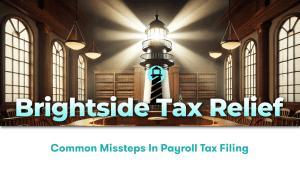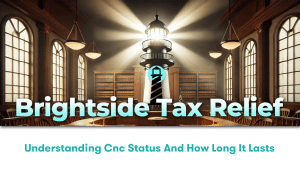Understanding Rental Income
Rental income is any payment received by an owner for the use of personal property, real property, or intangible property. This includes any advance rent payments, late payments, and even swap services like staying in your rental property for free in exchange for repairs or maintenance. Understanding rental income is integral to correctly reporting it on your taxes. At Brightside Tax Relief LLC, we aim to educate anyone seeking to have a better grasp of rental income taxes.
What Constitutes Rental Income
Firstly, we need to establish what qualifies as rental income. Generally speaking, the IRS considers the following as rental income:
– Money tenants pay for the use of your property, which you must report in the year you received it.
– Advance rent, irrespective of the period it covers
– Payments for terminating a lease
– Expenses borne by the tenant and paid to third parties on your behalf or more specifically, any amount that you’d otherwise have to pay but is paid by someone else
Understanding what constitutes rental income is the first step in correctly reporting it in your taxes.
Rental Related Expenses Deduction
One of the main advantages of rental income is the ability to deduct rental-related expenses. If you have expenses tied to keeping your property operational and in good standing, you can likely write them off on your taxes. These expenses can include:
– Mortgage interest
– Property tax
– Insurance premiums
– Operating expenses like advertising and legal fees
– Cleaning and maintenance costs
– Travel expenses related to your rental activity
By offsetting your rental income with these costs, you can significantly reduce your overall taxable income. We encourage clients to maintain a thorough record of these expenses to maximize their deductions.
How to Report Rental Income
After understanding what constitutes rental income and knowing the expenses you can deduct, the subsequent step is filing your rental income taxes. The IRS requires that you report your rental earnings and expenses on Schedule E (Form 1040). On this form, you’ll provide detailed information about your rental income and associated costs, like those listed above.
If you’re new to reporting your rental income, follow these simple instructions:
1. List your properties and any rental income from each on Schedule E’s Part I.
2. Provide your total rental earnings for the year.
3. Input your listed expenses from each property under Part II and calculate your total expenses.
4. Deduct your expenses from your total rental income to derive your taxable income.
5. Report this net figure on your tax returns.
You can find more information on how to fill out Schedule E (Form 1040) in detail on the IRS website.
The Importance of Proper Record Keeping
Another essential factor in filing your rental income taxes correctly is maintaining proper records. Clear and accurate documentation of your rental income and expenses can save you a lot of hassle during tax season. Proper record-keeping practices include regularly updating your financial records, logging expenses as they occur, and diligently holding on to all related receipts, bills, and invoices.
Consulting with a Professional
We understand that taxes can be complex and sometimes overwhelming. That’s why engaging a professional tax relief company such as Brightside Tax Relief LLC can be an invaluable resource in your rental property business. We can provide expert advice, help you maximize your deductions while staying compliant with all federal tax laws.
Hiring a Property Manager
Hiring a property manager could also prove useful if you want to avoid the minutiae of managing a rental property. Property managers handle all aspects of the property, including collecting rental income and handling repairs and maintenance. They can also provide detailed monthly and annual reports, making your tax filing process significantly simpler.
Final Words on Rental Income Taxes
Properly reporting rental income is not just essential for tax compliance but also for maximizing your deductions, thus reducing your overall tax liability. By understanding what constitutes rental income, knowing your deductible expenses, properly filing your taxes using the right forms, and seeking the help of tax professionals, you can successfully navigate the tricky terrain of rental income taxes. At Brightside Tax Relief LLC, we are proud to have the expertise and resources to ensure accurate and efficient reporting of your rental income taxes.




